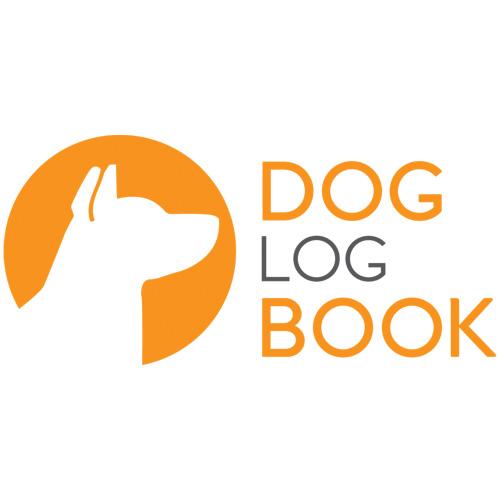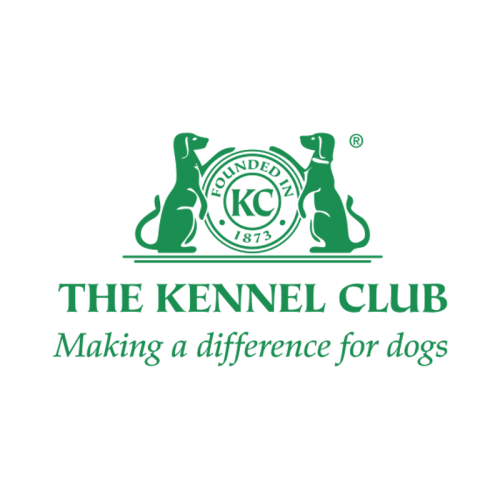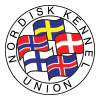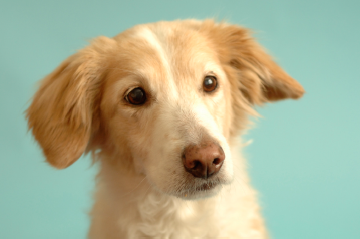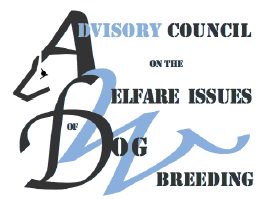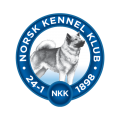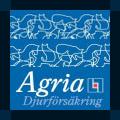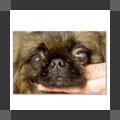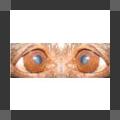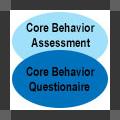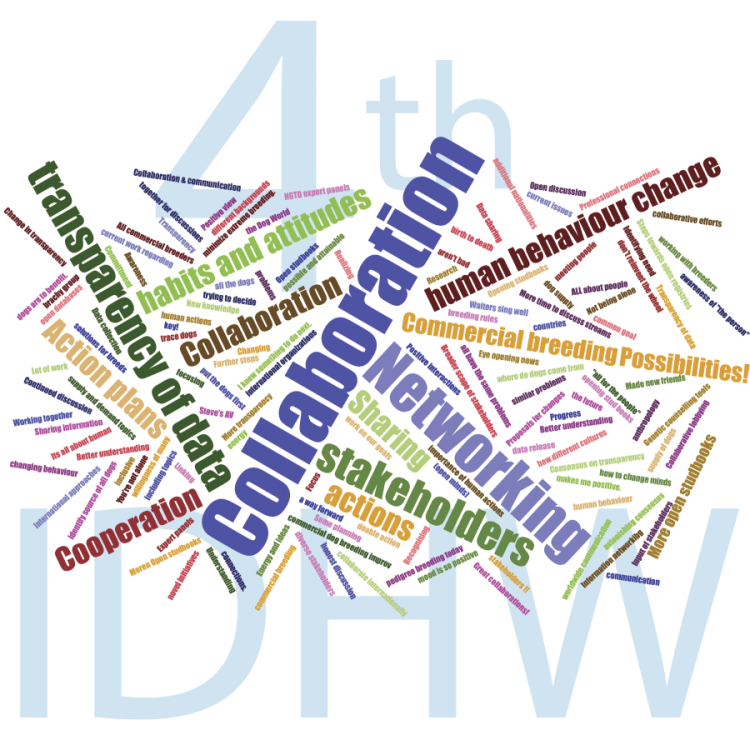Welfare and Health
Files on welfare implications of health, or health implications of welfare issues
20 files
-
Genetics articles - Dr. Jerold Bell
By Ann Milligan
A collection of articles authored by Dr. Jerold Bell:
Pedigree Analysis and How Breeding Decisions Affect Genes Small Population Breeds and Issues of Genetic Diversity Popular-Sire Syndrome: Keeping watch over health and quality issues in purebreds The Effects of Genetic Testing: Constructive or Destructive? Removing the stigma of genetic disease Breeding Strategies for Managing Genetic Traits547 downloads
Updated
-
The welfare of dogs and cats involved in commercial practices: a review of the legislation across EU countries
By Ann Milligan
http://www.dogandcatwelfare.eu
Executive Summary
The EU Dog & Cat Alliance was established in 2014 and brings together dog and cat welfare organisations from across the EU. The Alliance is calling for EU action to build a better Europe for dogs and cats.
Currently there is no EU legislation protecting cats and dogs in the context of commercial practices, other than rules on transport and health requirements when moved over borders. Legislation to protect the welfare of dogs and cats involved in commercial practices is therefore left to EU Member States.
National legislation can vary greatly across the EU, with strict legislation in some countries, and little at all in others. This situation can have serious consequences for animal welfare, but also for animal health, human health, consumer protection and the functioning of the internal market.
To assess the national legislation relating to dogs and cats involved in commercial practices in the EU, the EU Dog & Cat Alliance gathered information on identification and registration, breeding, trade and surgical mutilations from each of the EU’s 28 Member States on the basis of a list of questions. The results are summarised in this report.
343 downloads
Updated
-
Updated
-
The Kennel Club Breed Health Improvement Stategy - A Step by Step Guide
By Ann Milligan
2020 - The Kennel Club - Breed Health Improvement Strategy Toolkit
https://www.thekennelclub.org.uk/health-and-dog-care/health/breed-health-co-ordinators/breed-health-improvement-strategy-toolkit/
NOTE: The downloadable PDF available here is an ARCHIVED document.
The Kennel Club
BREED HEALTH IMPROVEMENT STRATEGY: A STEP-BY-STEP GUIDE
"This collection of tool kits is a resource intended to help Breed Health Coordinators maintain, develop and promote the health of their breed.. The Kennel Club recognise that Breed Health Coordinators are enthusiastic and motivated about canine health, but may not have the specialist
knowledge or tools required to carry out some tasks. We hope these tool kits will be a good resource for current Breed Health Coordinators, and help individuals, who are new to the role,make a positive start.
By using these tool kits, Breed Health Coordinators can expect to:
• Accelerate the pace of improvement and depth of understanding of the health of their breed
• Develop a step-by-step approach for creating a health plan
• Implement a health survey to collect health information and to monitor progress
The initial tool kit is divided into two sections, a Health Strategy Guide and a Breed Health Survey Toolkit."
331 downloads
- uk
- the kennel club
- (and 2 more)
Updated
-
The Kennel Club - Breed Specific DNA Tests - versions
By Ann Milligan
The use of DNA tests to manage dog health in populations of purebred dog breeds is constantly changing; new tests for mutations and breed specific tests are being introduced at a rapid pace.
The Kennel Club recognises DNA tests and schemes in conjunction with breed clubs and laboratories, some of which are recorded by the Kennel Club on the registration database and are available to view via the online tool Health Test Results Finder.
PLEASE NOTE: The files available here as downloads are ARCHIVED content that displays the DNA tests available for each breed along with an indication as to whether the test is part of the Assured Breeder Scheme (recommended or required) and whether it is recorded on the Kennel Club registration database. DNA tests are not yet available for every breed.
Please see current (2020) information including the KC's coverage of DNA tests at...
https://www.thekennelclub.org.uk/health/for-breeders/dna-testing-simple-inherited-disorders/worldwide-dna-tests/.
Also see:
https://www.thekennelclub.org.uk/health-and-dog-care/health/getting-started-with-health-testing-and-screening/1,696 downloads
Updated
-
NKU Strategy Regarding DNA Tests
By Ann Milligan
Information and policy from the Scientific Committee of the Nordic Kennel Union (NKU/VK) regarding the use of genetic tests in dog breeding
The availability of genetic tests for different diseases in dogs has increased dramatically in recent years. For breeders and dog owners, the utility and accuracy of these tests are often difficult to assess. Even though DNA tests offer new opportunities as a tool for breeding, they also imply new questions and challenges. The fact that a genetic test is available for a disease in a breed does not automatically mean that the test is accurate or appropriate to use as basis for breeding decisions.
The Scientific Committee of the Nordic Kennel Union (NKU/VK) would like to stress that genetic testing in dogs should be used with common sense and caution. The following points should serve as guidelines for breeders and dog owners in the Nordic countries regarding the use of genetic tests.308 downloads
Updated
-
Pedigree dog breeding in the UK: a major welfare concern?
By Ann Milligan
by Dr Nicola Rooney and Dr David Sargan with contributions from Dr Matthew Pead, Dr Carri Westgarth, Dr Emma Creighton and Dr Nick Branson
DESCRIPTION: Executive Summary of an independent report, which was commissioned by the RSPCA in order to help inform all those committed to protecting and improving the welfare of pedigree dogs.
The Full Report is also available.
Excerpt...
"The situation is complex, with many stakeholders and numerous plausible courses of action. Each breed has its own array of problems and so there is no single solution. From research findings, past reports and discussions with prominent experts in the field, the authors compiled a list of 36 distinct actions which have all been posed as possible routes forward. Then based on a survey of twenty experts in the fi elds of dog welfare, genetics, veterinary science, and practising veterinarians, the authors derived fourteen actions believed to hold the greatest potential value for improving pedigree dog welfare."
689 downloads
Submitted
-
Independent Inquiry into Dog Breeding (2010) -- Patrick Bateson
By Ann Milligan
excerpts from the Preface and Executive Summary
-------
"The Inquiry into dog breeding was headed by Professor Sir Patrick Bateson FRS. It was funded by Dogs Trust and the Kennel Club but was conducted independently of both organisations. The Inquiry received the advice of dog breeders as well as experts in genetics, animal welfare, and veterinary surgery and the report was anonymously peer reviewed by five experts in the three scientific fields. Throughout the Inquiry Professor Bateson was greatly assisted by Mrs Heather Peck."
------
"The structure of the report is as follows. After an introduction to the dog and its domestication, the second chapter discusses scientific advances in the assessment of animal welfare. The third chapter deals in general terms with the genetics of inbreeding. The fourth chapter summarises the response to my call for evidence and the fifth summarises what was learned from the interviews conducted over the summer. The sixth chapter deals with the central problem of poor welfare that has arisen in the course of breeding dogs and the seventh chapter discusses ways forward in order to improve matters. The eighth chapter gives my recommendations."
ALSO SEE:
Advisory Council Final Report -- Welfare Issues of Dog Breeding - 2014
http://dogwellnet.com/files/file/307-advisory-council-final-report-welfare-issues-of-dog-breeding-2014/
354 downloads
Submitted
-
Advisory Council Final Report -- Welfare Issues of Dog Breeding - 2014
By Ann Milligan
This report covers work done by the THE ADVISORY COUNCIL ON THE WELFARE ISSUES OF DOG BREEDING (2010 - 2014). Work continues on the development of a shared strategy with all stakeholders of good will to dog welfare. The top priority is to ensure that the specific projects and reports of the Council are taken forward by the relevant bodies and that collaborative work continues.
1,046 downloads
Submitted
-
Review and Recommendations for Developing an Effective England-wide Strategy for Dogs
By Ann Milligan
All-Party Parliamentary Group for Animal Welfare Sub-Group for Dogs
excerpt...
"What we need is for all dog owners and carers to be responsible. However, it is fundamental to set out exactly what responsible dog ownership and guardianship should look like. This seems like a simple question, and it is the one that started this piece of work. Yet the answer is complex and it is important that any future strategy recognises the interactions between irresponsible breeding and trade with dog control and animal welfare as well as the many benefits that come from dog ownership."
We hope to have further information on this report and other similar welfare related documents available soon
235 downloads
Submitted
-
Everyday Behaviour in Dogs. Breed Differences and Genetic Analysis
By Ann Milligan
Author: Helena Eken Asp
The Swedish Working Dog Association (SBK) has, since 1989, carried out a standardized behavioural test called Dog Mentality Assessment (DMA).
Results from the DMA can be condensed into five personality traits: playfulness, sociability, curiosity/fearlessness, chase-proneness and aggression. The aim of this thesis was to investigate the possibility to use information from the DMA to select for improved everyday life in dogs and to study the genetic background of everyday behaviour.
396 downloads
Updated
-
International and collaborative strategies to enhance genetic health in purebred dogs
By Ann Milligan
The first file here entitled "International and collaborative strategies to enhance genetic health" is a graphic from original article which illustrates the basis for action to enhance canine genetic health
Article from The Veterinary Journal:
International and collaborative strategies to enhance genetic health in purebred dogs
Authors: Åke A. Hedhammar, Sofia Malm, Brenda Bonnett
a b s t r a c t
Health problems in pedigree dogs have recently been highlighted in the media worldwide and verified internationally by cynological organisations. Collaborative actions are now needed to deal with both existing and future issues. In this article, potential roles for various stakeholders are discussed and the value of national and international platforms for collaborations is stressed. Development of specific strategies for action must be based on criteria of significance, such as severity, prevalence and inheritance, as well as availability of effective preventive measures. Assessment of options should be founded on evidence from appropriate populations-at-risk and consider broader issues, such as demographics and human–animal interactions. Existing data, such as those from insurance statistics and health surveys, should be used as a reference until representative national/international population-level breed-specific data are available. Key issues and challenges, as well as possible strategies to address them, are discussed.
http://dx.doi.org/10.1016/j.tvjl.2011.06.018
1,227 downloads
Updated
-
NKK: Animal Welfare Dog Breeds and Pedigree Dogs
Report from a seminar - Norwegian Kennel Club
ANIMAL WELFARE DOG BREEDS AND PEDIGREE DOGS
By Astrid Indrebø & Kristin Wear Prestrud
382 downloads
Updated
-
Inherited defects in pedigree dogs - Parts 1 and 2
By Ann Milligan
excerpt...
"The purpose of this review is to examine the number, prevalence and impact of disorders related to conformation aspects of the breed standards. This review is part of a larger study into all inherited disorders in pedigree dogs. The second part of this work deals with non-conformational inherited disorders (Summers et al., 2009)."
Inherited defects in pedigree dogs. Part 1: Disorders related to breed standards
Authors: Asher L1, Diesel G, Summers JF, McGreevy PD, Collins LM.
Abstract
The United Kingdom pedigree-dog industry has faced criticism because certain aspects of dog conformation stipulated in the UK Kennel Club breed standards have a detrimental impact on dog welfare. A review of conformation-related disorders was carried out in the top 50 UK Kennel Club registered breeds using systematic searches of existing information. A novel index to score severity of disorders along a single scale was also developed and used to conduct statistical analyses to determine the factors affecting reported breed predisposition to defects. According to the literature searched, each of the top 50 breeds was found to have at least one aspect of its conformation predisposing it to a disorder; and 84 disorders were either directly or indirectly associated with conformation. The Miniature poodle, Bulldog, Pug and Basset hound had most associations with conformation-related disorders. Further research on prevalence and severity is required to assess the impact of different disorders on the welfare of affected breeds.
This article is also available for a fee at: http://www.sciencedirect.com/science/article/pii/S1090023309003645
Inherited defects in pedigree dogs. Part 2: Disorders that are not related to breed standards
Authors: Jennifer F. Summers, Gillian Diesel, Lucy Asher, Paul D. McGreevy, Lisa M. Collins
Abstract
Recent debate concerning health problems in pedigree animals has highlighted gaps in current knowledge of the prevalence, severity and welfare implications of deleterious inherited traits within the pedigree-dog population. In this second part of a two-part review, inherited disorders in the top 50 UK Kennel Club registered breeds were researched using systematic searches of existing databases. A set of inclusion and exclusion criteria, including an evidence strength scale (SEHB), were applied to search results. A total of 312 non-conformation linked inherited disorders was identified, with German shepherd dogs and Golden retrievers associated with the greatest number of disorders. The most commonly reported mode of inheritance was autosomal recessive (71%; 57 breed-disorder combinations), and the most common primarily affected body system was the nervous sensory system. To provide a true assessment of the scale of inherited disorders in the pedigree dogs studied more effort is required to collect accurate prevalence data. This article is also available for a fee at: http://www.sciencedirect.com/science/article/pii/S1090023309004407
1,207 downloads
Updated
-
Companion Animal Health and Longevity:Interplay with human-animal interactions
By Ann Milligan
Author: Dr. Brenda Bonnett
This pdf file is assembled from slides from various presentations I have made to veterinarians, researchers and those interested in human-animal interactions. Too often we talk separately about 'health' or 'welfare' or issues of human-animal interactions. I think these issues are closely inter-related and we need to view them holistically.
Within the talk, topics of health and longevity are illustrated with population-level statistics from Agria Animal Insurance in Sweden (they insure over 300,000 dog, 250,000 cats and about 100,000 horses on a yearly basis. See the DogWellNet.com category 'Population Data on Dogs' for more information).
307 downloads
Updated
-
Eye Health in Dogs|Short Version
By Ann Milligan
Eye Health in Dogs|Short Version
Authors: Berit Wallin Håkansson, Text and illustrations, Sheila Crispin, Photographs and concept, Nils Wallin Håkansson, Photographs, concept
"Introduction
This text is a compilation of the long experiences of three Veterinary Ophthalmologists (DECVO). It explains different eye and adnexal problems in dogs that are the immediate result of breeding towards exaggerated breed typical features."
excerpt...
"The term Critical Control Point, CCP, is suggested to describe an outer limit that must not be exceeded.
The line should be drawn at physiognomies that increase the risk of ocular illness."
322 downloads
Updated
-
Eye Health in Dogs|Comprehensive
By Ann Milligan
Eye Health in dogs|Comprehensive
Authors: Berit Wallin Håkansson, Text and illustrations, Sheila Crispin, Photographs and concept, Nils Wallin Håkansson, Photographs, concept
"Introduction
This text is a compilation of the long experiences of three Veterinary Ophthalmologists (DECVO). It explains different eye and adnexal problems in dogs that are the immediate result of breeding towards exaggerated breed typical features."
Topics:
• The normal eye
• Breed typical eye problems
• Critical Control Points
• Exophthalmos, protruding eye
• The blink mechanism and tear film
• Enophthalmos, sunken eye
• Entropion
• Medial
• Lateral
• Upper
• Lower
• Entropion "full circle"
• Eyelid tacking
• Surgical correction (I)
• Ectropion
• Diamond eye
• Macroblepharon
• Surgical correction (II)
• Trichiasis
• Dry eye
• "Cherry eye"
• Keratoconjunctivits sicca
• Summary
692 downloads
Updated
-
Dog World Article: Kennel Club Seminar Report: Simon Parsons
By Ann Milligan
Dog World article: Author: Simon Parsons. Created: 18/07/2012
"I don't regret what we did at Crufts", says KC chairman at eye seminar - A personal report from Simon Parsons
Dog World Article Source:
http://www.dogworld.co.uk/product.php/75160/1/%E2%80%98i_don%E2%80%99t_regret_what_we_did_at_crufts%E2%80%99,_says_kc_chairman_at_eye_seminar___a_personal_report_from_simon_parsons
excerpt...
"LAST WEEK I went to the second of the two seminars on eye conformation, arranged by the Kennel Club, this one in the boardroom at Clarges Street. ... Professor Sheila Crispin followed with her illustrated talk on the various deviations from normality which exists in canine eyes... "
258 downloads
Updated
-
New developments and assessment tools for behavior Challenges and needs
By Ann Milligan
Author Erling Strandberg of Swedish University of Agricultural Sciences, Dept of Animal Breeding and Genetics provides a thoughtful overview of behavior and personalty testing and genetic correlations between dog mentality assessment and everyday behavior traits.
264 downloads
Updated
-
Owner-companion dog interactions: Relationships between demographic variables, potentially problematic behaviours, training engagement and shared activities
(Posting of a published paper: Author P.C. Bennett)
Abstract
Many companion dogs occupy a privileged position in our society, living closely with human caretakers who go to great lengths to provide for their needs and desires. Others fare less well, being abandoned or killed, many because they are believed to exhibit behaviour problems. The aim in this study was to investigate the frequency of potentially problematic behaviours experienced by a convenience sample of companion dog owners and to establish if the presence of these behaviours was associated with demographic variables, involvement in dog training activities and participation in other dog-human interactions. Potentially problematic behaviours were reported to occur by the 413 adult participants only infrequently, but fell into five factors; disobedience, unfriendliness/aggression, nervousness, anxiety/destructiveness and excitability. Each of these f actors was associated with a number of owner and dog characteristics. Engagement in training activities was predictive of lower scores being obtained for many of the behaviours, as well as increased involvement in shared activities. Some of the behaviours, particularly the perceived friendliness of the dog, were also predictive of involvement in shared activities. This confirms that strategies designed to increase participation in dog training activities and promote canine sociability may have significant benefits for both companion dog owners and their dogs.
www.elsevier.com/locate/applanim Applied Animal Behaviour Science 102 (2007) 65–84
* Corresponding author. Tel.: +61 3 9903 1144; fax: +61 3 9903 2501.
E-mail address: p.bennett@med.monash.edu.au (P.C. Bennett).
0168-1591 # 2006 Elsevier B.V. doi:10.1016/j.applanim.2006.03.009 Open access under CC BY-NC-ND license.
222 downloads
Updated
 Donate
Donate

